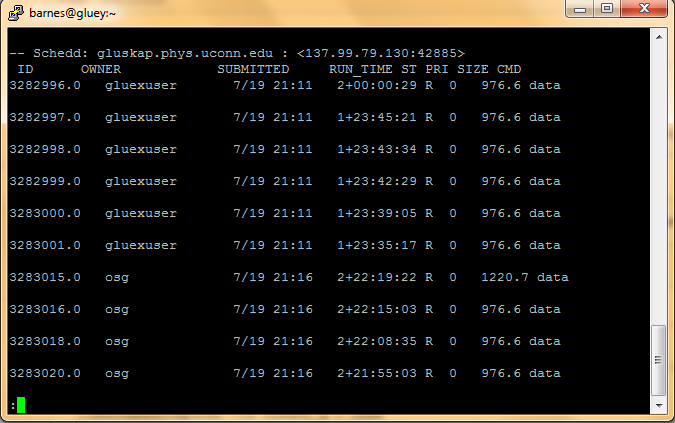Difference between revisions of "How to Monitor Jobs"
Jump to navigation
Jump to search
m |
|||
| Line 18: | Line 18: | ||
*program name | *program name | ||
| + | This is useful to monitor your own jobs to check on their status. | ||
| + | |||
| + | Another useful command is <i>condor_status</i> which can tell you information about the cluster machines | ||
| + | <pre> | ||
| + | [username@computer ~]$ condor_status [-r] | less | ||
| + | </pre> | ||
| + | |||
| + | This will show a list of the various machine resources and if the option -r is supplied it will only show machines with running jobs. | ||
If there are any concerns about a specific job, please contact the main administrator. | If there are any concerns about a specific job, please contact the main administrator. | ||
Revision as of 20:26, 12 September 2016
How to Monitor Jobs
Once jobs have been submitted to the cluster, monitoring can be performed using the following command in a terminal
[username@computer ~]$ condor_q -submitter <username>| less
This will display
- the process ID
- the owner of the job
- the date and time it was submitted
- how long it has been running
- its current status (run, held, idle)
- the job size
- program name
This is useful to monitor your own jobs to check on their status.
Another useful command is condor_status which can tell you information about the cluster machines
[username@computer ~]$ condor_status [-r] | less
This will show a list of the various machine resources and if the option -r is supplied it will only show machines with running jobs.
If there are any concerns about a specific job, please contact the main administrator.
